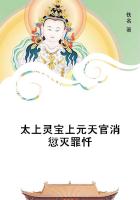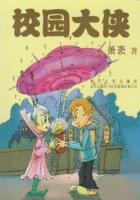The English Gypsy Language Romano Lavo-Lil: Word-book of the Romany Rhymed List of Gypsy Verbs Betie Rokrapenes: Little Sayings Cotorres of Mi-dibble's Lil. Chiv'd Adrey Romanes: Pieces of Scripture cast into Romany The Lord's Prayer in the Gypsy Dialect of Transylvania Lil of Romano Jinnypen: Book of the Wisdom of the Egyptians Romane Navior of Temes and Gavior: Gypsy Names of Countries and Towns Thomas Rossar-Mescro, or Thomas Herne Kokkodus Artarus Mang, Prala: Beg on, Brother English Gypsy Songs Welling Kattaney: The Gypsy Meeting Lelling Cappi: Making a Fortune The Dui Chalor: The Two Gypsies Miro Romany Chi: My Roman Lass Ava, Chi: Yes, my Girl The Temeskoe Rye: The Youthful Earl Camo-Gillie: Love Song Tugnis Amande: Woe is me The Rye and the Rawne: The Squire and Lady Romany Suttur Gillie: Gypsy Lullaby Sharrafi Kralyissa: Our Blessed Queen Plastra Lesti: Run for it!
Foreign Gypsy Songs The Romany Songstress L'Erajai: The Frair Malbrun: Malbrouk The English Gypsies Tugney Beshor: Sorrowful Years Their History Gypsy Names Fortune-Telling The Hukni Cauring Metropolitan Gypsyries Wandsworth The Potteries The Mount Ryley Bosvil Kirk Yetholm "Can you rokra Romany?
Can you play the bosh?
Can you jal adrey the staripen?
Can you chin the cost?"
"Can you speak the Roman tongue?
Can you play the fiddle?
Can you eat the prison-loaf?
Can you cut and whittle?"
The Author of the present work wishes to state that the Vocabulary, which forms part of it, has existed in manuscript for many years. It is one of several vocabularies of various dialects of the Gypsy tongue, made by him in different countries. The most considerable--that of the dialect of the Zincali or Rumijelies (Romany Chals) of Spain--was published in the year 1841. Amongst those which remain unpublished is one of the Transylvanian Gypsy, made principally at Kolosvar in the year 1844.
December 1, 1873.
THE ENGLISH GYPSY LANGUAGE
The Gypsies of England call their language, as the Gypsies of many other countries call theirs, Romany or Romanes, a word either derived from the Indian Ram or Rama, which signifies a husband, or from the town Rome, which took its name either from the Indian Ram, or from the Gaulic word, Rom, which is nearly tantamount to husband or man, for as the Indian Ram means a husband or man, so does the Gaulic Pom signify that which constitutes a man and enables him to become a husband.
Before entering on the subject of the English Gypsy, I may perhaps be expected to say something about the original Gypsy tongue. It is, however, very difficult to say with certainty anything on the subject. There can be no doubt that a veritable Gypsy tongue at one time existed, but that it at present exists there is great doubt indeed. The probability is that the Gypsy at present exists only in dialects more or less like the language originally spoken by the Gypsy or Zingaro race. Several dialects of the Gypsy are to be found which still preserve along with a considerable number of seemingly original words certain curious grammatical forms, quite distinct from those of any other speech. Others are little more than jargons, in which a certain number of Gypsy words are accommodated to the grammatical forms of the languages of particular countries. In the foremost class of the purer Gypsy dialects, I have no hesitation in placing those of Russia, Wallachia, Bulgaria, and Transylvania. They are so alike, that he who speaks one of them can make himself very well understood by those who speak any of the rest; from whence it may reasonably be inferred that none of them can differ much from the original Gypsy speech; so that when speaking of Gypsy language, any one of these may be taken as a standard. One of them--I shall not mention which--I have selected for that purpose, more from fancy than any particular reason.
The Gypsy language, then, or what with some qualification I may call such, may consist of some three thousand words, the greater part of which are decidedly of Indian origin, being connected with the Sanscrit or some other Indian dialect; the rest consist of words picked up by the Gypsies from various languages in their wanderings from the East. It has two genders, masculine and feminine; o represents the masculine and i the feminine: for example, boro rye, a great gentleman; bori rani, a great lady. There is properly no indefinite article: gajo or gorgio, a man or gentile; o gajo, the man. The noun has two numbers, the singular and the plural. It has various cases formed by postpositions, but has, strictly speaking, no genitive. It has prepositions as well as postpositions; sometimes the preposition is used with the noun and sometimes the postposition:
for example, cad o gav, from the town; chungale mannochendar, evil men from, i.e. from evil men. The verb has no infinitive; in lieu thereof, the conjunction 'that' is placed before some person of some tense. 'I wish to go' is expressed in Gypsy by camov te jaw, literally, I wish that I go; thou wishest to go, caumes te jas, thou wishest that thou goest; caumen te jallan, they wish that they go.
Necessity is expressed by the impersonal verb and the conjunction 'that': hom te jay, I must go; lit. I am that I go; shan te jallan, they are that they go; and so on. There are words to denote the numbers from one up to a thousand. For the number nine there are two words, nu and ennyo. Almost all the Gypsy numbers are decidedly connected with the Sanscrit.















